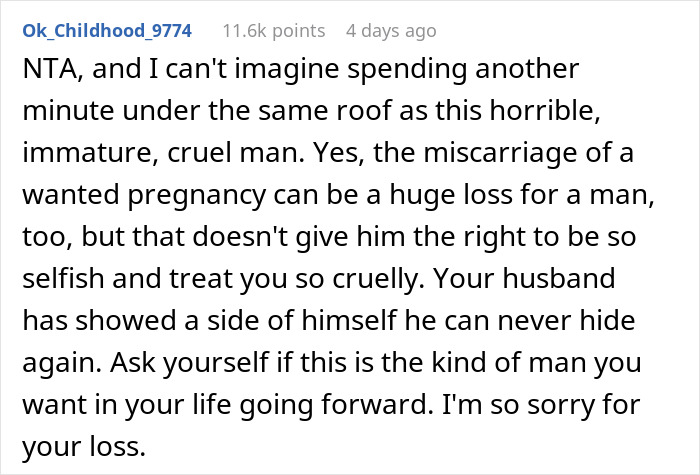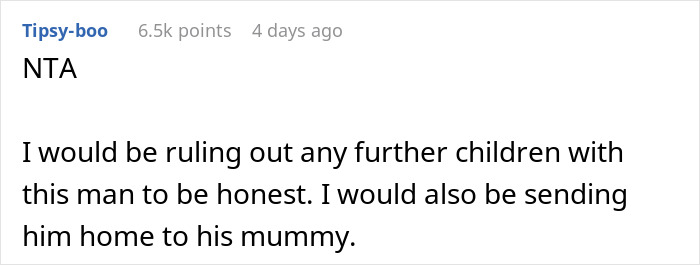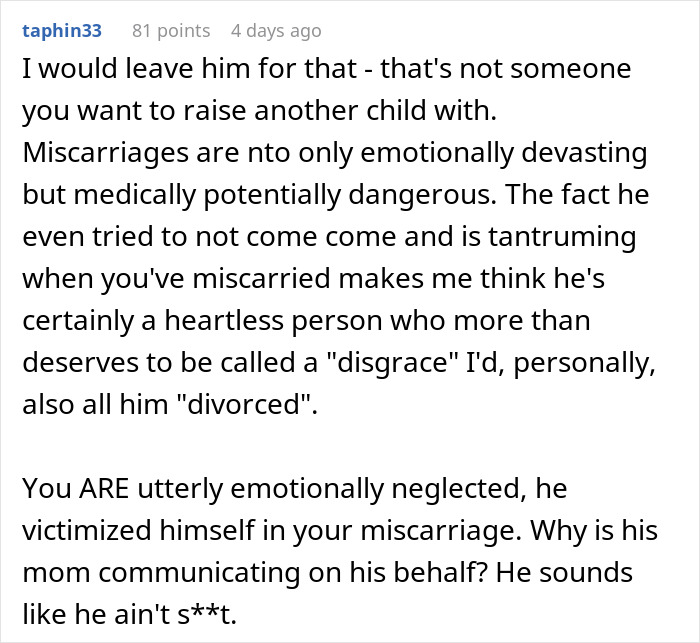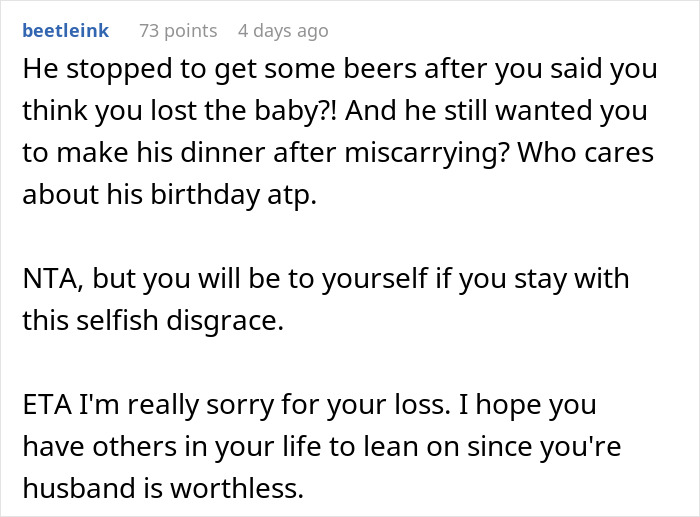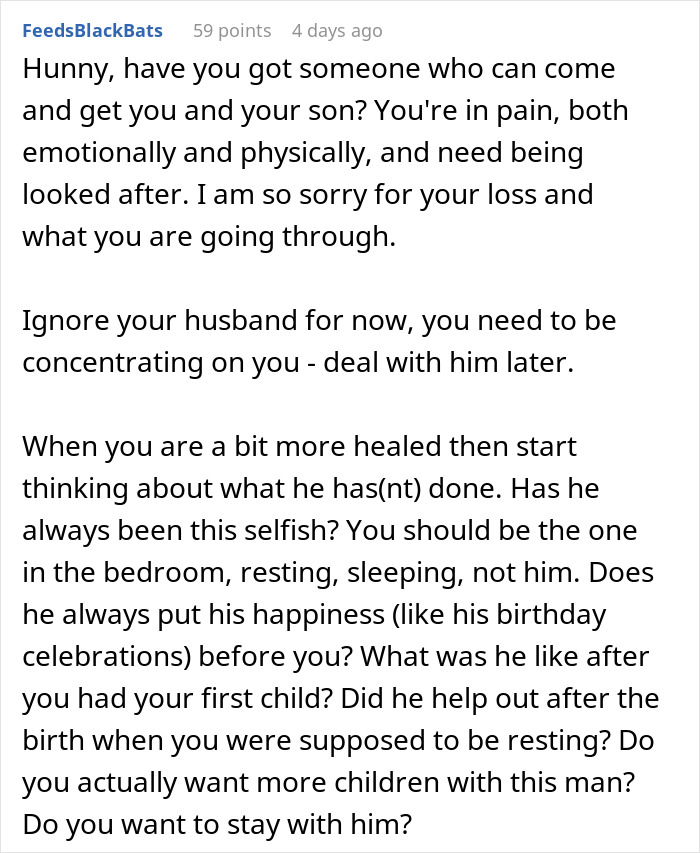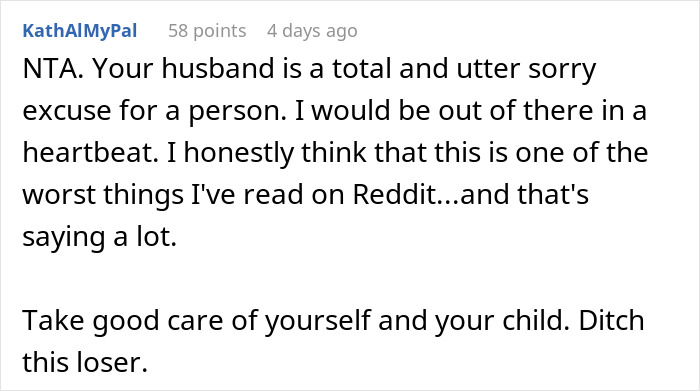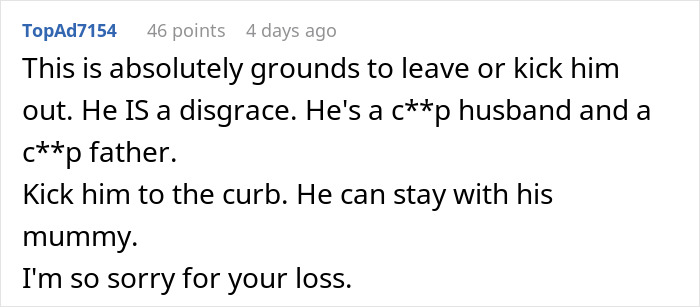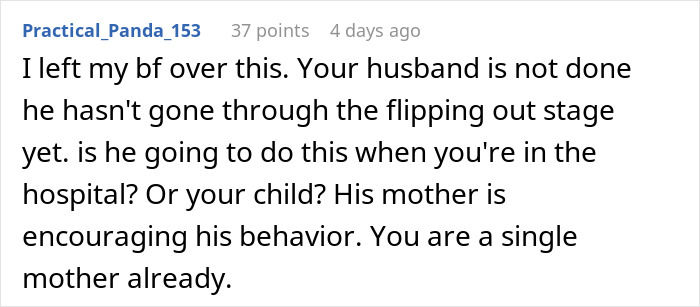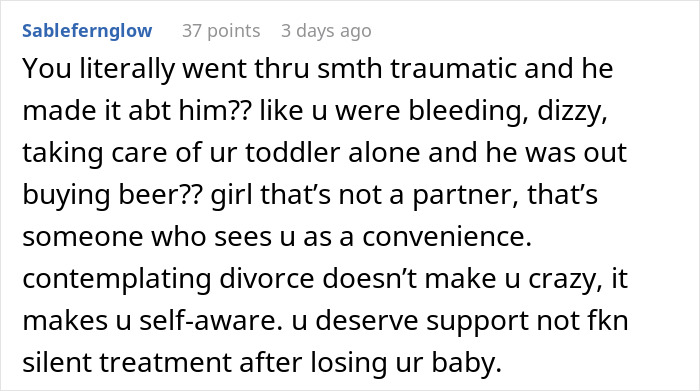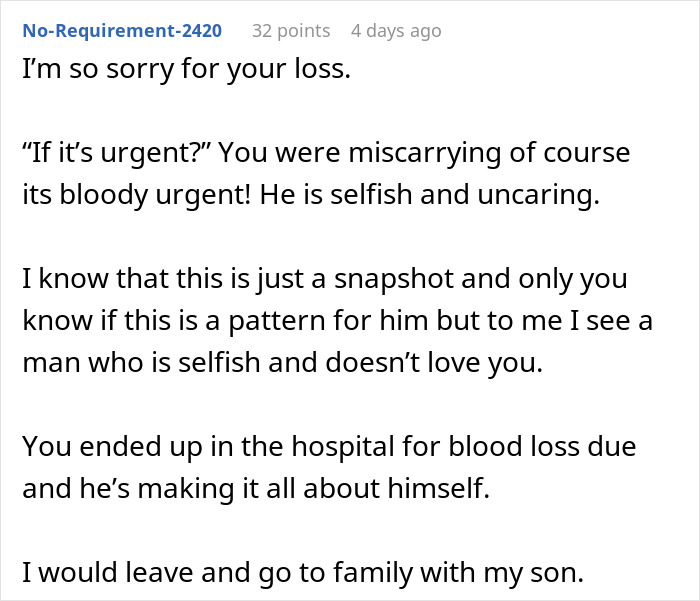Losing your child is one of the most painful, stressful, and horrifying experiences that can happen to anyone. Miscarriage can have a very powerful and lasting impact not just on your physical but also emotional and mental health. What you need in those moments is support from your loved ones, not being blamed and shamed.
Devastated mom u/ProgressDependent703 opened up about her recent miscarriage in a now-viral post on the AITAH online group. The woman shared that her husband’s reaction wasn’t one of support but the opposite: he blamed her for ‘ruining’ his birthday. Scroll down for the story in full, including the advice some helpful internet users gave the author.
Warning: this topic is incredibly sensitive and deals with loss. Bored Panda has reached out to the author, and we’ll update the article as soon as we hear back from her.
Losing your child is unimaginably painful, both physically and emotionally

Image credits: LightFieldStudios/Envato (not the actual photo)
A woman who recently miscarried shocked the internet by revealing how her husband reacted to the news

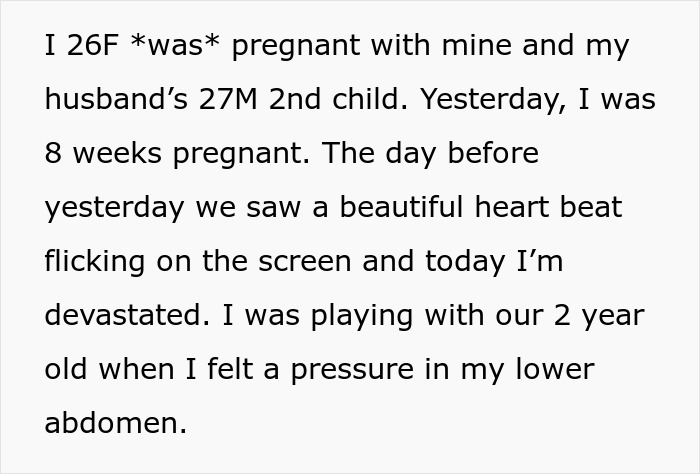
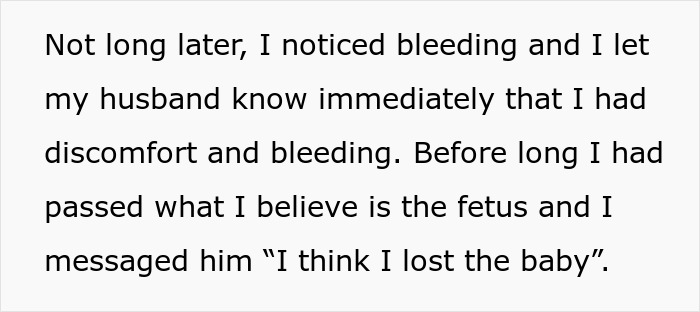
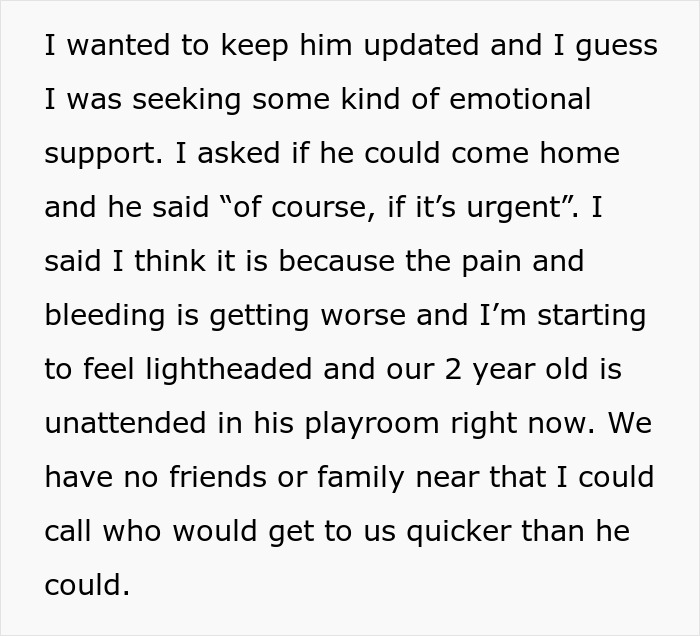
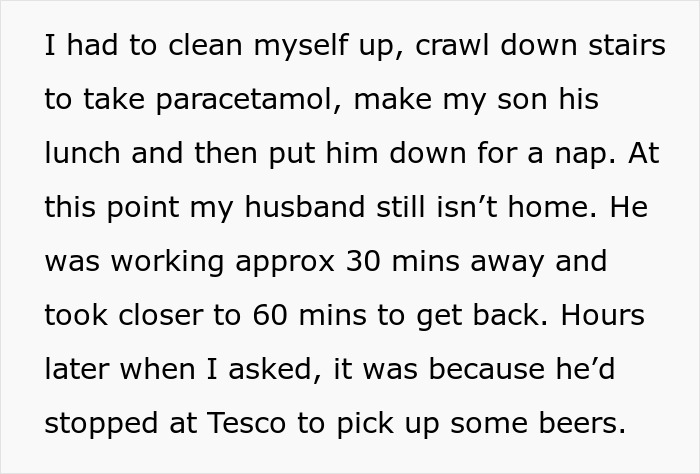
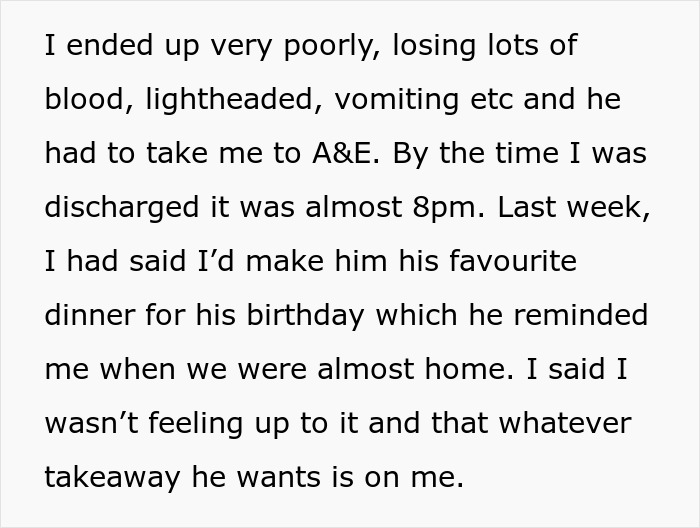

Image credits: jm_video/Envato (not the actual photo)
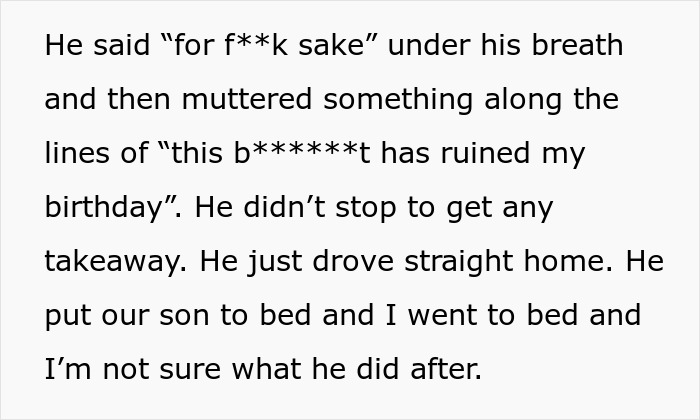
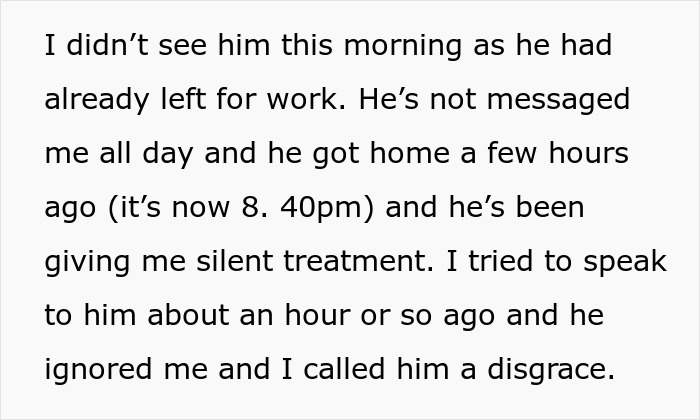
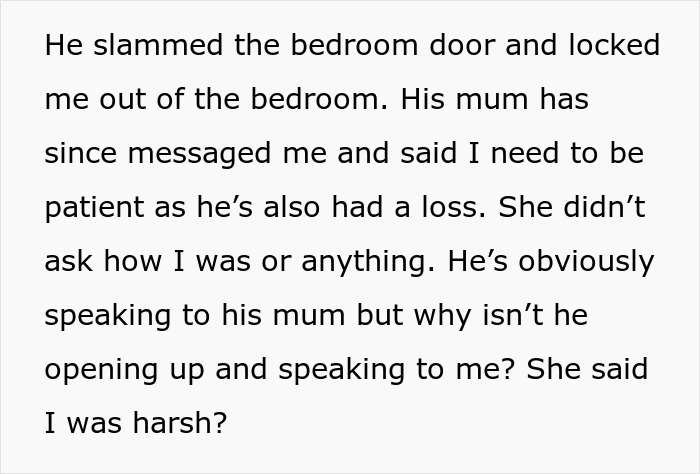

Later, the woman shared an update about her family situation

Image credits: ProgressDependent703
It is natural to go through a period of grief after miscarriage

Image credits: seleznev_photos/Envato (not the actual photo)
To be crystal clear, nobody deserves to be shamed in the middle of a tragedy. Losing your child is devastating. This is the moment for unconditional support and familial warmth, not blaming the victim. There is no excuse for bullying someone who is grieving.
In a brief update in one of the comments, author u/ProgressDependent703 shared that she has taken some important steps after her miscarriage to ensure her and her two-year-old’s safety.
“I have left my husband. Me and my son are staying with family and are safe. I have another scan tomorrow morning to make sure I have passed everything successfully. Thank you to everyone who had reached out and offered advice, it’s been really helpful. +I started antibiotics for my tonsillitis on Saturday and I’m already feeling much better,” she wrote.
Many online readers were utterly shocked by the complete lack of empathy that her husband showed her. Some internet users called out his selfishness. Others urged the woman to divorce him as soon as possible.
The NHS states that in some cases, the emotional impact of miscarriage can be felt immediately after it happens. However, in some cases, it can take several weeks before this occurs.
“Many people affected by a miscarriage go through a bereavement period. It’s common to feel tired, lose your appetite and have difficulty sleeping after a miscarriage. You may also feel a sense of guilt, shock, sadness and anger—sometimes at a partner, or at friends or family members who have had successful pregnancies.”
There is no one ‘correct’ way to grieve. Different people can deal with their loss very differently. Some might want to talk about what transpired. Others might find the subject of miscarriage too painful to voice aloud.
“Some people come to terms with their grief after a few weeks of having a miscarriage and start planning for their next pregnancy. For others, the thought of planning another pregnancy is too traumatic, at least in the short term. If you’re in a relationship, it can help to make sure you’re both open about how you are feeling,” the NHS writes.
How you comfort someone in pain and what you say really does matter

Image credits: Media_photos/Envato (not the actual photo)
“Your partner may also be affected by the loss. Men sometimes find it harder to express their feelings, particularly if they feel their main role is to support the mother and not the other way round. Miscarriage can also cause feelings of anxiety or depression, and can lead to relationship problems.”
In some cases, the couple should consider seeking treatment or counseling to help them cope with their grief. This might mean talking to a mental health counselor who specializes in grief, or joining a support group of people who have been through similar devastating experiences as you have.
The NHS warns that you should be feeling physically and emotionally well before trying for another pregnancy. It’s essential that you talk to your doctor about everything.
“It’s natural to want to know why a miscarriage happened, but unfortunately this is not always possible. Many miscarriages are thought to be caused by a one-off problem with the development of the foetus.”
The Miscarriage Association explains that it can be difficult to find the right words to comfort someone who is grieving for their lost child. However, in many cases, simply acknowledging the person’s loss can be helpful.
You may, for example, want to say something like “I’m very sorry that you have lost your baby,” or “This must be really difficult for you,” or “I don’t know what to say.”
Meanwhile, things you should not say to someone who is grieving after miscarriage include phrases like “Don’t worry, you’re young. You can always have another baby,” or “It wasn’t meant to be,” or “It was probably for the best,” or “At least you have other children.” These comments can be insensitive.
Many internet users were appalled by what they read. Here’s how they responded to the devastated author

